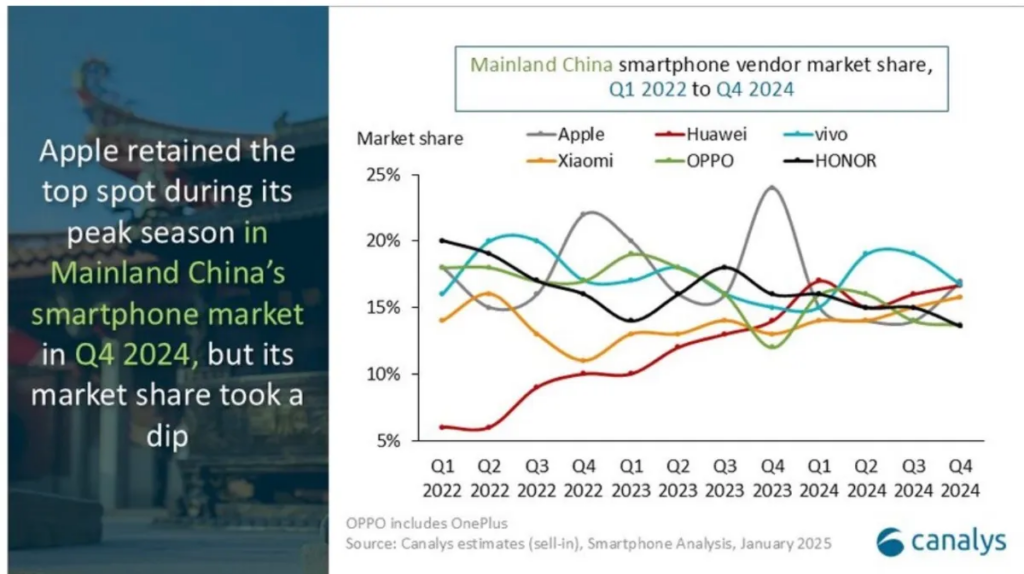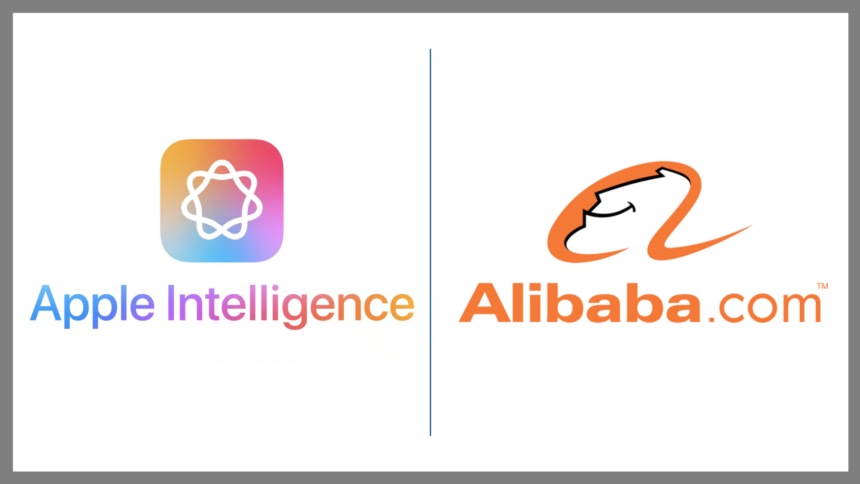Apple has officially teamed up with Alibaba to integrate AI-driven features into iPhones in China. This decision ends months of speculation about how Apple would bring AI services to one of its largest markets while navigating the country’s strict regulatory requirements. Due to China’s laws, foreign companies must work with local AI providers to ensure compliance. After considering several leading AI firms like DeepSeek, Baidu, ByteDance, and Tencent, Apple chose Alibaba’s Qwen AI model.
This move signals Apple’s effort to reclaim market share in China, where competition from Huawei and Vivo has intensified. Apple Intelligence, the company’s suite of AI-powered tools, is already available in select global markets like the U.S., the U.K., Canada, and Australia. However, a Chinese rollout would require local adaptation.
What’s Happening & Why This Matters
Apple’s AI Expansion Faces Regulatory Barriers
Apple’s AI services in China were delayed due to government restrictions, requiring partnerships with approved Chinese firms. Working with Alibaba allows Apple to launch its AI capabilities without violating regulatory rules. Alibaba’s Qwen AI model will power Apple Intelligence for Chinese users, though it remains unclear whether Alibaba will exclusively handle Apple’s AI needs.
Apple Faces Increasing Competition in China
Apple is struggling to maintain its foothold in the Chinese smartphone market, especially with Huawei making a strong comeback. In 2023, Apple led China’s premium smartphone sales, but by 2024, Huawei overtook Apple, shifting market share to 16% for Huawei and 15% for Apple.
- Huawei’s comeback gained momentum after U.S. trade restrictions in 2019, initially slowing growth but later driving domestic innovation.
- The 2023 Mate 60 Pro launch cemented Huawei’s lead, forcing Apple to adjust its strategy.

The partnership is a critical boost for Alibaba, whose Hong Kong-listed shares have surged over 40% since early 2024. Investors see this as a sign of Alibaba’s AI strength, making it a major player in China’s AI ecosystem. Apple’s reliance on Alibaba’s AI services reinforces Alibaba’s influence in the expanding AI sector.
China’s AI Race Intensifies
Alibaba is competing with other AI firms to dominate the market. DeepSeek AI disrupted the industry in January, launching a powerful language model outperforming several rivals. In response, Alibaba upgraded its Qwen AI model, claiming it delivers superior performance. This growing competition is shaping China’s AI innovation landscape, with Alibaba, DeepSeek, Baidu, and Tencent all battling for dominance.
Meanwhile, Elon Musk’s xAI is preparing to launch Grok 3, its latest large language model. Musk has claimed it will be the most advanced AI chatbot yet, adding another layer to the global AI rivalry.
TF Summary: What’s Next
Apple’s partnership with Alibaba clears the way for AI-powered features in China, but competition remains fierce. With Huawei’s growing dominance and rival AI firms like DeepSeek and Baidu gaining traction, Apple’s long-term success in China’s AI market is uncertain. Meanwhile, Alibaba strengthens its AI influence, benefiting from Apple’s endorsement as a trusted AI provider in China.
— Text-to-Speech (TTS) provided by gspeech


